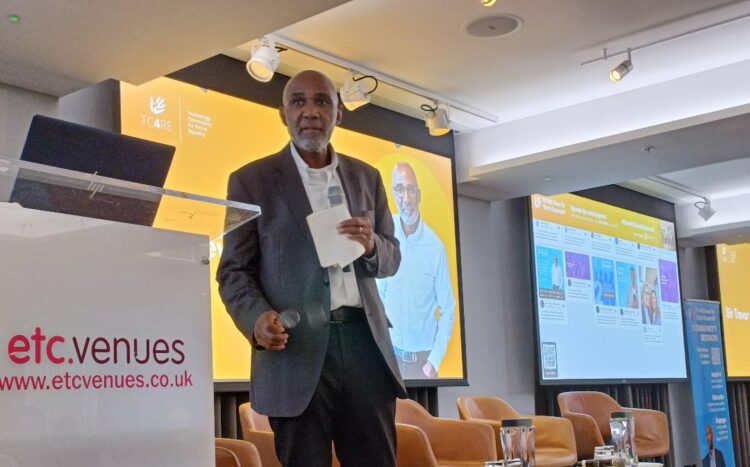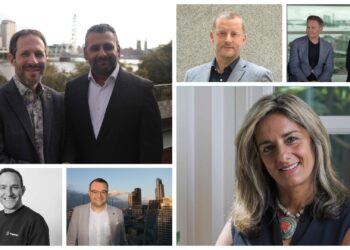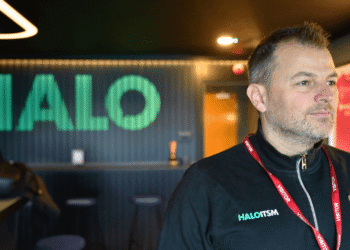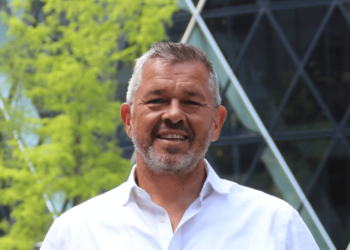How can the technology sector drive change when it comes to racial equality?
That was the question posed by ResourceIT CEO Julie Simpson as she opened TC4RE’s inaugural Race to Tech Summit this morning.
Founded in 2021 in the wake of the Black Lives Matter movement, TC4RE’s members include Computacenter, Insight, boxxe, Softcat, TD Synnex, Exertis and Microsoft (see more information here) .
IT Channel Oxygen was invited to sit in on the keynotes and panels, which featured appearances from journalist, broadcaster and former politician Sir Trevor Phillips MBE, Tech Talent Charter Founder Debbie Forster and channel heavyweights such as Exertis CEO Tim Griffin and Microsoft’s Apay Obang -Oyway.
Here we round up some of the most powerful comments from throughout the day….
“Inclusion is what music you are playing at your party, not just who’s there”
In his opening keynote, Phillips stressed that diversity and inclusion “are not the same thing”.
He used the analogy of someone throwing a party who invites men and women of all races, religions and sexual orientation. “That’s great, you’ve got a room full of diversity. But if you put the decks in the hands of a guy who thinks the only music you can dance to is Aerosmith, nobody’s coming back to your party,” he explained.
“I think the technology sector should hold up its hands as maybe one of the worst offenders. We have a lot of work to do.”
Maria Purcell, VP Advertising, International at Business Insider (pictured speaking, below), said she had seen “massive progress” followed by “massive retraction” on DEI since the Black Lives Matters movement began in 2020 – a topic covered in more depth here.
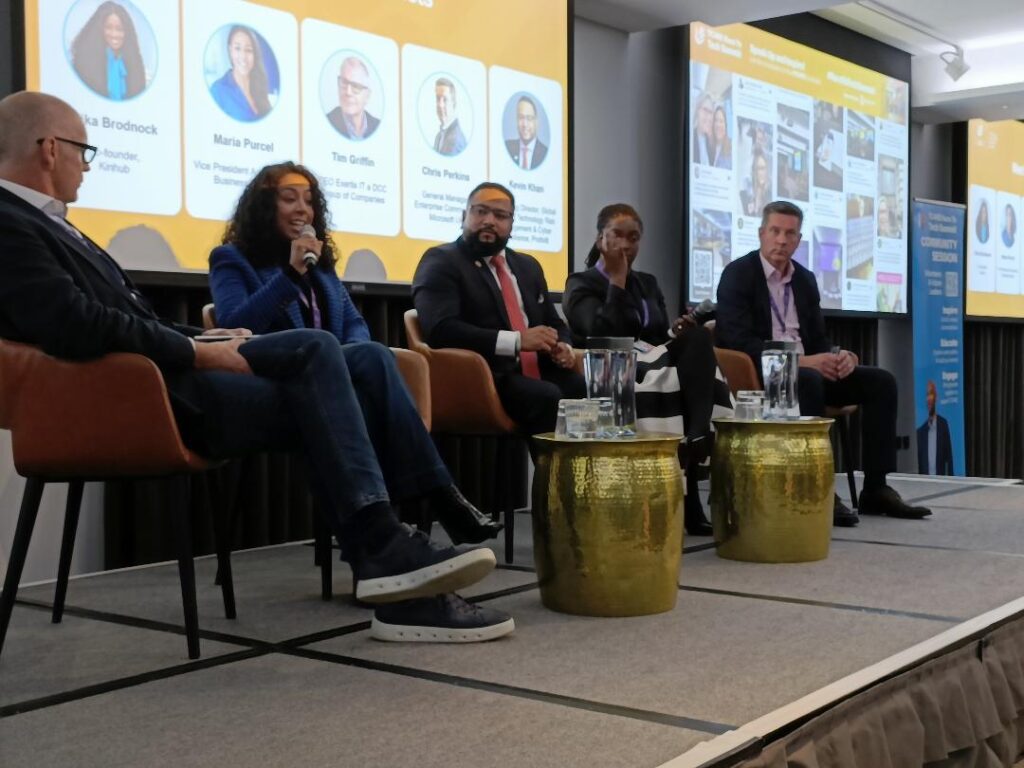
“We’re closing our doors because what we see happening is quiet quitting on diversity and inclusion”
Tech Talent Charter Founder Debbie Forster accused tech companies of hiding behind hashtags and performative action as she explained why the D&I-focused non-profit opted to shut its doors in June.
Forster said she is calling for “new action”, however. “You don’t get to the top of the mountain in one climb – that’s how a lot of people die. You climb a while and then build your base camp, so people don’t have to keep going down. You then resupply and begin the next ascent. That’s why our website will stay out there,” she said.
“There’s no dearth of black founders, so there is a problem in venture capital.”
Academic and entrepreneur Erika Brodnock MBE talked about research she’d conducted in 2020 at the LSE. Over a ten-year period, just 0.24% of venture capital funding went to black-led start-ups, with black women receiving just 0.02% of VC funding, it found.
“It was quite a relief to understand the problem was the market; it wasn’t me,” said Brodnock, who founded and leads software company Kinhub.
Follow-up research conducted in 2023 suggests the picture has improved marginally, with black founders and black female founders receiving 0.98% and 0.14% of VC funding respective, she stressed.
“The question we have to ask ourselves is: how does diversity and inclusion become an answer to the ‘Monday morning problem’, as well as the ‘Sunday problem’?
Referencing his religious upbringing, Phillips said those advocating for D&I must argue the case not just on the basis of social justice, but also on the basis that it makes business sense.
“It’s not altruism; this is a winning strategy”
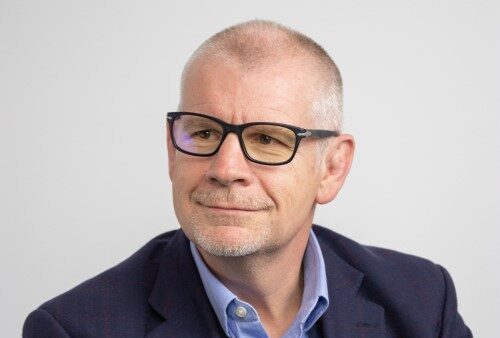
Exertis CEO Tim Griffin agreed with Phillips, saying that, although fostering greater diversity and inclusion is “the right thing to do”, companies must also tie it into economics.
“It [improves] your ability to forge emotional connections with your stakeholders, which is everybody from your employees to your customers. As a consequence of our DEI journey we’ve also [built] stronger relationships with the likes of Microsoft and Softcat, where we’ve been able to do a whole raft of events that collaborate across industry,” Griffin added.
“I just don’t think we can go and say ‘hey, it’s a moral imperative’. We have to bring economic reality. When you start to talk about the £24bn opportunity in an economy that is stagnating and the 1.3% growth you can add to UK GDP that currently isn’t growing, people start to pay attention.”
Microsoft’s Apay Obang-Oyway picked up the same theme in one of the morning’s break-out sessions. “When you bring that to bear, that’s when we drive change. Some people may find it controversial, but it’s plain reality,” he said.
Doug Woodburn is editor of IT Channel Oxygen


